|
11/16/2016 Two Poems by Tricia Marcella CimeraThe Trees Rise Up Darkly The trees rise up darkly in the woods behind my house but I’m never afraid. I know all the firs, the pines; they never change. I don’t want to leave but my father is calling me, says it’s time, get in the car. On the psychiatric ward the nurses, the orderlies, the other patients stand between my mother and me, blocking out her face, my sun. Your mother is-- Your mother is-- they all say as if she has no voice to talk, as if she’s no longer mine. It’s true, I don’t know her anymore. Her dark hair is disheveled, her eyes flat stones and one thin bare arm wears a hospital ID bracelet that hangs like a leaf from some strange sick tree. The Dreams in Which I’m Dying (Barn) The dreams in which I’m dying are the best I’ve ever had — Roland Orzabal When I was young and beginning to come into what I was, I jumped out of a hayloft onto a big pile of hay in the neighbor’s old dead barn. A pitchfork was hiding in there but I missed it. No one saw. I never said a word to any of you shouting and playing, just ran away, pulling chaff out of my mouth. You laughed, called after me with your pretty, wheedling voice; the barn waited. Now every night I dream of jumping out of that hayloft and every time I land I’m impaled by that gleaming pitchfork again and again. And in my dream I wonder who you would be if I had not lived to run out of that old dead barn and this, this dream is the best I’ve ever had.  Bio: Tricia Marcella Cimera is a Midwestern poet with a worldview. Look for her work in these diverse places (some forthcoming): Buddhist Poetry Review,The Ekphrastic Review, Foliate Oak, Failed Haiku, I Am Not A Silent Poet, Mad Swirl, Silver Birch Press, Yellow Chair Review, Wild Plum and elsewhere. She has a micro collection of water-themed poems called THE SEA AND A RIVER on the Origami Poems Project website. Tricia believes there’s no place like her own backyard and has traveled the world (including Graceland). She lives with her husband and family of animals in Illinois / in a town called St. Charles / by a river named Fox. A multi-instrumentalist and poet from Portland Oregon, Gillian Frances sets gloomy daze to electric guitar. Her new EP, Born Yesterday, described as faery folk, has a distinctly slow, simmering sound, reminiscent of a mid-90's Cat Power. Having spent a year playing in the indie band This Is The Kit, an experience which she says taught her a lot about what it takes to be a musician and a bandleader, she is now forging her own solo career as well as playing in two other bands Hex Vision & Sufer Rosie. Here she talks about the importance of being politically creative and aware as a musician, especially given the current moment that we are in, and also about growing up with two parents who were actively involved in the 90's DIY scene in Portland, and how the music and ethos of that era continue to inspire her. AHC: What has this journey, this life in music, so far, been like for you, the highs and the lows, and what life lessons do you feel you've picked up along the way? Gillian: Music has been a defining aspect of my life since I was a child. My best friends, my past romantic partners, and my personal interests have all been influenced in one way or another by the existence of music in my life and community. I don’t really think about my musical ‘highs’ and ‘lows’, but rather how it has healed, challenged and guided me. In regards to the social aspect, music has taught me how to communicate, how to compromise and collaborate. And in terms of my personal growth with music, I have learned to appreciate subtlety, patience and above all, humility. AHC: What first drew you to music and what was your early musical environment like growing up? Were there pivotal songs for you then that just floored you the moment you heard them? Gillian: I was raised by folks who were actively involved with the DIY grunge/rock scene in the 90’s in Portland. My dad is a drummer and always had a drum kit set up in our living room, so I learned how to play drums at an early age. Music was always playing when I was a child, it was usually The Pixies, Liz Phair or the Smashing Pumpkins. I remember listening to those bands before I knew how to talk—and when I listen to them now I feel a strong sense of nostalgia. I started playing violin when I was ten, and also began attending the Rock ‘n’ Roll Camp For Girls, which is where I really began to grow and gain confidence as a musician. I was involved with that camp for about ten years—as a camper, an intern and then a music instructor and band coach. It was there that I learned about the misrepresentation of women, queer people and people of color in the music industry. I began learning about sexism, feminism, and the power behind protest music. AHC: Do you remember the first song that you ever wrote? Gillian: Yes, it was about my sister. My mom was in the kitchen and I was in the living room and my mom asked me what my sister Isabel was doing. I was holding a guitar and started strumming it and singing, “Isabel is laying on the couch, Isabel is laying on the couch and her feet are up,” etc. I was in a band in high school called Like Lemons and we used that song to sing about our respective sisters. AHC: Who are some of your musical inspirations? Which musicians have you learned the most from? Gillian: I’ve learned the most about music from people who I’ve been lucky enough to encounter outside of the digital world. When I was eighteen I played in a band for a year called This Is The Kit, and I learned a lot from the folks in that band. Not only do they make amazing, ethereal, honest music, but they are also wonderful, gracious, politically-aware and thrifty people. My experience playing in This Is The Kit taught me a lot about what it is like to be a bandleader, and of the tireless amount of work that being a musician requires. Some other excellent musicians that I’ve been listening to a lot lately are Heather Woods Broderick, Marika Hackman, Sea Oleena and Marisa Anderson. AHC: What do you think makes for a good song, as you're writing and composing, is there a sudden moment when you know you've found the right mix, that perfect angle of light, so to speak? Gillian: Most of my songs have been written in very different ways, so I can’t really say that I experience a specific feeling or moment every time I finish a song. I’ve written songs on the streets, in buses, on my bike and in my bed. I often send the songs that I’m working on a few trusted friends or family for feedback before deciding that it is done. What makes for good songwriting, in my experience, is honesty and personal growth. I try to come up with melodies and sing in vocal ranges that are new to me, and I try to write lyrics that stick as closely as possible to a stream-of-consciousness sort of thing, because that style always feels the most genuine and vulnerable. AHC: How has your music evolved since you first began playing? Gillian: I started playing music when I was so young, and there are so many ways that my relationship with music has evolved since I first picked up an instrument. I’ve expanded my musical horizons in probably every direction, and continue to do so as much as I can. AHC: Do you consider music to be a type of healing art, the perfect vehicle through which to translate a feeling, a state of rupture, hope lost and regained? Does the writing and creating of the song save you in the kinds of ways that it saves us, the listener? Gillian: I guess so, but I also think that there is such a vast spectrum of intention behind music, so it doesn’t really serve one purpose. I like music because there are so many reasons to play it. Sometimes it is healing and cathartic, sometimes I vocalize emotions that I could never do in a sentence. But I also like to play music because it is fun, or because I’m with friends and we’re sitting on the porch in the summer. Sometimes playing music does absolutely nothing for me and I need to stop or else I will end up getting more frustrated. The music that I find to be the most healing is often music that addresses political and social inequalities that exist in society, and considering who our new president-elect is and how much turmoil our country is undergoing, I am pushing myself to write songs that reflect that distress. I’m feeling pretty helpless and powerless at this moment, and in this time it is so important to recognize the power and the voice that lives behind musical expression, and that recognition can be healing in itself. AHC: What are your fondest musical memories? In your house? In your neighborhood or town? On-tour, on-the-road? Gillian: My fondest memories of music are probably touring. I miss being on the road, driving for hours on end and pulling up at a random venue in a random city to play a show that was, more often than not, to a room of ten people or less. I’ve always loved looking out of windows and visiting new places, so touring offers plenty of opportunities for me to do both. AHC: What would be your dream gig, if you were asked to go on tour and open up for one of your musical heroes or heroines? Gillian: I dream of opening for Sharon Van Etten, in a small, candle-lit venue. I would probably cry the whole time, and it wouldn’t be the first time that I’ve cried on stage. AHC: Do you have any words of advice for other musicians and singer-songwriters out there who are just starting out and trying to find their voice and their way in this world? Gillian: Don’t doubt yourself, it is pointless. Humility is important but there is a difference between being consistently self-critical and acknowledging hard work and passion that other people have for their art. I love music because it is a safe space, it can be as private and/or ephemeral as I’d like. Considering the political climate that we are living in today, creating music and art is so so important. I do not think that any words or messages are too simple or redundant—if they resonate with you as the writer, they will resonate with many others. AHC: Do you have any new projects in the works you'd like to tell people about? Gillian: Yeah! I’m playing bass and singing in a project called Hex Vision. We’re based in Portland and you can find us here: https://www.facebook.com/whatthehexvision Halloween has unfortunately passed, but for that wonderful holiday I was also in a Pixies Cover band with my other band Surfer Rosie. For more information visit gillianfrances.bandcamp.com/releases To The President-Elect, Mr. Donald J. Trump how dare you how fucking dare you how dare you confess your love how dare you say you care who are we to open our arms who are we to talk of equality the ground you walk has frozen over and you are the devil himself my mama always said, “the devil is dressed in gold” how dare you talk of change your world is sick and cold how dare you look into my eyes you are responsible for the tears my loved ones cry how dare you! how dare you talk of unity while war slips from your lips how dare your heart freely beat while mine shakes and stutters in my sleep how fucking dare you! how dare you stand before me without getting on your knees how dare you even speak it all sounds like jibberish to me how could you make my nation weep while you rest easy in your placid sleep how fucking dare you!  Bio: Kelsey Cooley is a senior at the University of North Texas. She is involved in the writing program and is soon to be a graduate student. One day, she hopes to become a creative-writing professor. 11/14/2016 Four Poems by James DiazThe Whole World, It Seemed, Was Quietly Breaking I was the shadow that fell awkwardly across your sleeping arm harsh words that stuck around too long our love had no place to go hearts full pockets empty wishing all that water would come rushing to the surface days grow longer and the peaceable things find their way back to us in the morning light something was breaking and it was no longer only us that felt it. Dark Writ Over The Skin The tiniest curve of light how an avalanche tastes like the place you came from an open wound settling old scores with the air how many times have you had to hold yourself in the dark as if letting go would break you in two raised like a wolf by people swift with their fists but so slow with their love even the sight of morning can scatter the place you sit wounded keeping watch for the next great undoing as if it's already begun. The Deeper Wound And this is one of those hearts half breaking new light against the ground how your cursive outsmarts the initials of your name walking due North alone in your skin how time will not wait for whatever it is you meant to say full of presence that sits at the bottom of a glass invitational and out of reach. I Also Yes things can break suddenly yes you may have a hard time learning to become whole again yes it happened to me too. But promise me you'll hold out for tomorrows inevitable light, however fractured, however lost along its way it sometimes gets. Your 'right now' is not your 'later on', its shine and its darkness are different, so preciously different.  Bio: James Diaz is a writer and activist, living in upstate New York. His work has appeared in HIV Here & Now, Chronogram, Cheap Pop Lit, Ditch, Foliate Oak, Collective Exile, My Favorite Bullet, Pismire, Your One Phone Call, The Voices Project, Calliope, The Idiom, A Long Story Short, Underground Books, Dissident Voice, Red Fez, Haggard and Halloo and Epigraph, among others. He is also the founding editor of Anti-Heroin chic. His first book of poems 'This Someone I Call Stranger' is forthcoming from Indolent Books next year. 11/14/2016 Six Poems by Ann BlackburnPHOTOGRAPH I wrote a sonnet about the monkey shirt my father wore when he was drunk and posing like an Egyptian – It was yellow with lyrics from some Phish song he’d blare in his bedroom across the house from where my mother slept. I still have the picture he made me take as he slurred threats about leaving. But who would remember this loss – this unseen devotion to self. ATTEMPT #1 I am his silhouette. Wanting impalpable euphoria -- instead an ostensible despair kisses my forehead. The missing goodnights of briefcase holders and world wide webs of un-relatable arachnophobes. Wilted, bruised knees and somersaults. Floors matted with concrete. He was never home -- loving Tokyo’s heated seats. Nine years of never loving me. ALONE Home is a graveyard filled with nonexistent love and incapable company. Bed is made of grass that has turned into tiny sterilized needles waving - come hither - from the infested ground. Comfort is the blood-drained body laying exposed upon the field. Realization is the notion that you’re on your own - you are for nobody and nobody is for you. FALLING The oak’s roots cancerously tie knots around my body. I am stuck between living, feeling dead, and dying but being alone forever. Rescue me please; reality has taken my innocence. Like a star becoming a black hole -- I, too, am on the brink of extinction Dear White Hole Cut in the Sky Like a Snowflake, Your gravity ebbs and flows my body, and your milky sea creates craters in my eyes. Silence whistles me lullabies, but you disappear. You grow smaller and smaller until your absence bleeds through my still blue veins — and I sit on the balcony’s railing, trying to hear your presence. I tell you I wish for waxing, but you always seem to wane away. As though there is enough of you there to dwindle — starless -- until there is nothing left of me, but the sliver of you and your snow-flake wings. WISH #1 I wish I were a scar, drifting anonymously; devoid of the “elsewheres.” My family: the robotic torches in a heatwave. Me: the necrotic wreckage of should haves and no normalcy. I am the bottom of a candle, lit with carbon, dropping nectar. Exiled average.  Bio: Ann Blackburn is a student at Sarah Lawrence College where she studies poetry. She is currently working on her manuscript. Her work has previously appeared or is forthcoming in Red Paint Hill Poetry Journal, Crack the Spine, Eunoia Review, and elsewhere. Her website can be found at: www.annblackburnpoetry.com Whitney's sound is playful and original with lyrics that often illustrate the connection between the human heart and nature. She is loved for her soothing voice and genuine approach to songwriting. Her latest catalog of songs (Full Bloom) were recorded in a barn-turned recording studio. Producer Joe Lapinski captured Whitney's knack for charming the listener into a love-affair with nature. Her past albums include All A Feeling, With A Heart Intending Forward and the EP Lo Fi Fun. Here Whitney talks about Tchaikovsky's The Nutcracker, Shirley Temple, loud 90's music in nostalgic car rides, getting chills from hearing Bebel Gilberto sing in Portuguese for the first time, motherhood and what inspires her unique and endearing songwriting. AHC: What has this musical journey, so far, been like for you, the highs and the lows, and what life lessons do you feel like you may have picked up or absorbed along the way? Whitney: My musical journey has been my life's journey. I feel the two are so intertwined. All of the musicians I've played with over the years are not just other musicians but family to me. Even songwriting feels less like a craft and more like a basic life need. That's not to say its not immensely challenging. Sometimes songs take forever to finish, sometimes gigs are hard, hard work and sometimes you really doubt yourself but all in all I just love it so much. I've learned many lessons through playing music. I think a major one is being professional. Even the most laid back of gigs deserves preparation, that way I can enjoy myself once I step onstage. AHC: What first drew you to music and what was your early musical environment like growing up? Were there pivotal songs for you then that just floored you the moment you heard them? Whitney: The first music that literally floored me was Tchaikovsky's The Nutcracker. I was 5. I can remember dancing wildly around the living room with my sister to that tape until I could barely stand up. I recently saw the actual ballet and struggled back my tears the entire time. I wasn't sad, I was just overwhelmed with how beautiful it all was. Both my mom and dad are musical souls. My mom and I sang lots of Shirley Temple songs together. My dad bought me my first cassettes. They were a mix of classic rock, a Bob Marley album and for some reason the "Footloose" soundtrack (or maybe I bought that one) Either way I loved those tapes. My big brother was a real audiophile. He drove me and my sister to school everyday. We had no choice but to listen to music really loudly while he shouted over-top why that particular song was so great "do you hear that bass line?!" A lot of 90's music both popular and cult underground was ingrained in me during those car rides. AHC: Do you remember the first song that you ever wrote or the moment when you first took to writing and realized that it was something of immense and irreplaceable value to you? Whitney: I'm not sure if it could be classified as a song but I distinctly remember making up a short melody on the piano when I was very little. All I wanted to do was make my fingers move in that pattern. I dreamed about my little song. It was my buddy. AHC: Who are some of your major musical inspirations? Which musicians have you learned the most from? Whitney: I've been inspired by so many musicians in my life but this one sticks out - Bebel Gilberto and her album Tanto Tempo. I was maybe 16 when I first heard it. I remember getting chills all over my body listening to it alone in my headphones. I had never heard samba and bossa rhythms beneath a female songwriter before and it was my first time hearing someone sing in Portuguese. I found the music liberating in every sense; the instruments, the voice, the timing and the over-all feel. It really inspired me to be my own person in my songs and to be true to my music. AHC: What do you think makes for a good song, as you're writing and composing, is there a sudden moment when you know you've found the right mix, that perfect angle of light, so to speak? Whitney: What makes a good song is a true song. I don't mean factually correct, but true. It's hard to capture but at the same time easy if you stay out of the way. My favorite songs are the ones I let breathe. The moment I know it's the right song is when I can walk away from it without fear of it leaving me. Sometimes I walk away for a couple hours and sometimes for a couple years. AHC: Your music is very uplifting, tending towards the brighter side of life, there is often the stereotype of the sad or brooding singer-songwriter, but your songs go against that grain. Do you consciously try to stay away from the sadder sounds and songs? Whitney: I don't consciously try to write happy music, though I feel an obligation to not add to an already painful world. I don't know.... Life can be hard. I guess I want to cheer myself up too. I'd be lying if I didn't say music is mostly a cathartic endeavor for me. Ironically I think my music is sad but everyone else seems to classify it as happy. I guess that's okay. AHC: Your latest album 'Full Bloom' was recorded in a barn/studio, what was that experience like? Whitney: Recording Full Bloom was wonderful. I wanted a comfortable, earthy environment to record these songs. They were about belonging and fearlessness. Sometimes a conventional studio can feel pressuring so setting up in an old farm house worked charms. Joe Lapinski my producer knows how important the vibe is to both facilitate and capture. I really enjoyed working with him. AHC: What are your fondest musical memories? In your house? In your neighborhood or town? On-tour, on-the-road? Whitney: Fondest memories? - Great rehearsals. I love working with my band-mates and over the years we've had some pretty exciting shows to get ready for. I love holding that anticipation together and working towards a great performance. Sometimes the pressure forces new ideas into the airwaves and we have no choice but to try them out. AHC: What would be your dream gig, if you were asked to go on tour and open up for one of your musical heroes or heroines? Whitney: Dream gig? Playing with an orchestra. That would be the most incredible thing. AHC: Do you have any words of advice for other musicians and singer-songwriters out there who are just starting out and trying to find their voice and their way in this world? What are the kinds of things that you remind yourself of when you begin to have self-doubt or frustration with the creative process? Whitney: My advice would be to take care of yourself. I know artist types can be self destructive. I myself have those tendencies but you gotta fight that and be positive. Sometimes the best way to get out of your own head is to support other people. Find friends and fellow musicians navigating a similar path and help them out. Promote a show for them, offer to sell their merch, drive them to a gig, give them constructive criticism. You will learn so much by lending a hand. AHC: Do you have any new projects in the works you'd like to tell people about? Whitney: I just had a baby in July - A baby boy. He is kind-of my world right now so I guess that is my latest project. And it's not without it's music. I recently wrote two songs about childbirth and recorded them shortly after. My husband bought me the studio time as a birthday gift and I was reluctant at first because leaving our newborn for longer than 30 seconds was almost impossible, let alone an entire recording session. But I did it! I even had some fantastic other artists come guest on the songs. The result was two spontaneous sounding folk tunes that I'm not so sure what to do with yet. I will release them soon I think. For more information visit whitneypea.bandcamp.com/ 11/12/2016 Four Poems by Howie GoodThe Binding of Isaac 1 Fear can be a subtle thing, neither shadow of the unknown bird nor hole of your own making, but distant porch lights of a few lonely houses. 2 Sure, your daughter is dead, your wife has left you, your career has collapsed. But then the television starts talking to you. 3 Your God is too small, a mountain deer on his knees, glimpsed from the road as the road twists up the mountain, and still you believe. 4 You can see Syria from here, fish in a dead landscape, starry nights and astronauts, the soft edges of time. What year is it? Don’t you think it’s time for love? Everything else has failed. White roses sing and sing. Devolution I’m about to cross the street when a man gets out of his car and yells, “You can’t make a revolution with silk gloves!” and then punches me in the eye. Through the haze of my surprise and pain, I see sabers, white horses, red poppies. I see the future of the Left. I see children pressing their little faces against the glass. “Fuck this,” I say, and start walking. That’s just human nature, how to get back to the middle of the ocean. The Hotel of Forgotten Artists There’s no one at the reception desk to welcome you. There never is. Only you don’t realize that. How could you? And so you wait. You wait and wait, and while you wait, your clothes, your manner, your worldview go out of fashion. Only you don’t realize that either. By now you don’t even realize that you are waiting, because you have been waiting so long that waiting has become indistinguishable from being, the total extent of your activities. Nothing ever disrupts or otherwise interferes with the industry of waiting. No one crosses the lobby. No one sits on the furniture placed in conversation clusters. No news enters from outdoors. It’s been a year, maybe more, since you last imagined you heard voices, footsteps, music. Upstairs the rooms are spotless – in fact, identical white boxes – and all numbered zero. Vroom Something, I don’t know what, wakes me. My head feels weirdly organized, like a city policed by mobs. Ah, the absurdity of having a fixed bedtime! “How long did I nap?” I ask Mollie, whose hair looks a radioactive shade of red in this light. She doesn’t answer, just continues texting. Maybe I should calm down. A soul weighs, on average, 21 grams. How much does a ghost weigh? * The sad old man who plays accordion on the street was staring at the sky. Only then did I notice that another layer of the atmosphere was missing. That night, rain fell, interspersed with neon words: “glaze,” “thread,” “murmur.” The result was hypnotic. “What a town,” I said, “what a town.” But who spoke for all the dying animals? It wasn’t like every house had a two-cow garage. * The last great American hero killed himself in a bathtub surrounded by 12 pairs of children’s shoes. Now a man who looks something like him is hitting on a skeptical blonde. “If you want to study the disease,” he is saying, “you must live in the swamp.” As he spoke, strange black flowers burst open overhead. Back there behind the sun, all ideas fall apart, and dreams tell the future, and everyone is too drunk to fuck. Bio: Howie Good co-edits White Knuckle Press with Dale Wisely. His most recent collection of poetry is A GHOST SINGS, A DOOR OPENS (2016) from Another New Calligraphy. 11/11/2016 Interview with Singer-Songwriter Lucy Isabel
Photograph by Evan William Smith
Singer-Songwriter Lucy Isabel has a unique voice, at times reminiscent of a young Joan Baez. Although she feels herself more akin to Bruce Springsteen, who also hails from her native state of New Jersey and who, as she says, "just gets it, he understands." Here she talks about musical theater, acting, Billy Joel, 70's folk rock, Superstorm Sandy, and the struggle of being a starving artist, the importance of staying with it, no matter what, in pursuit of the art of the song and the creative passions that drive us to continue our calling. AHC: What has this musical journey, so far, been like for you, the highs and the lows, and what life lessons do you feel like you may have picked up or absorbed along the way? Lucy: My musical journey so far has been relatively short, but not without its triumphs and pitfalls. I had never really planned to pursue a career in music. I always sang. Always. But I was an actor. I did musical theater, and I planned to be on Broadway from the time I was a very little girl. Songwriting came into the picture for me while I was in college, after I taught myself to play guitar. And it became what seemed like the "easy" path in a strange way when I began to question whether or not I really wanted to immerse myself in the New York theater scene as it was at the time. I've enjoyed my journey with music so far, but it can be hard. There's times when you feel invincible, like you're doing everything right, and there's times when you start to question if all the effort you're putting forth is actually productive in any way. Even so, for me, when I'm feeling low about music it's never a matter of quitting or not quitting; it's only ever a matter of recalibrating. It's a matter of taking a step back and seeing what changes I can make to feel like I'm accomplishing my goals. In a way, that's one of the best life lessons I've picked up so far: giving up is only the answer if you allow it to be. AHC: What first drew you to music and what was your early musical environment like growing up? Were there pivotal songs for you then that just floored you the moment you heard them? Lucy: The thing that really drew me to music initially was how ingrained it was in my family. My mom had been a singer and and actress, my uncle is a singer and an actor. A couple of my aunts also sang, though they didn't pursue it professionally. My older sisters sang. There was really no escaping it. My dad isn't much of a singer, but he's always had a deep love for music. He could turn on the radio and know the words to almost any song. As a young kid, I don't remember a specific song that got me (though I was a huge fan of Disney movies and "Colors of the Wind" was my jam). As I got a little older, though, there were a couple of artists that just had me the moment I started listening to them. I got really into Billy Joel when I was 12 or 13. REALLY into him. His music is the reason I decided to learn how to play piano when I was 14. And when I was in high school, Bruce Springsteen changed my world. I felt like he got it, he understood. He knew me. AHC: Do you remember the first song that you ever wrote or the moment when you first took to writing and realized that it was something of immense and irreplaceable value to you? Lucy: I would make up little ditties when I was young. In high school I would write half a song and then get stuck and not worry about it. I'd just let them fall to the wayside. I can still remember some of those partial songs, though I don't think I'll ever finish them. I like the incompleteness of those ones. The first full song I ever wrote was a song called "The Voice." I'm from the beach in Jersey and Hurricane Sandy (or Superstorm Sandy, as it's officially called) just decimated the whole area. I was up at school when the storm hit, but I had just been at home a few days before on fall break. And I remember talking to my mom on the phone and she just said "Sea Bright is gone." And I said, "What does that mean?" And she said, "Sea Bright is gone. Buildings are gone. The ones that aren't gone are destroyed. There's water up to your waist in the street and they're trying to get the people who stayed for the storm out of the buildings." I felt so helpless. So I picked up my guitar and I wrote a song about it. I spent much of the rest of that school year alone with my guitar. AHC: Who are some of your major musical inspirations? Which musicians have you learned the most from? Lucy: As I mentioned above, Billy Joel and Bruce Springsteen had a huge influence on me when I was growing up. I would say Bruce has also been an inspiration to me in my writing. He writes a lot of story songs, and that's really my bread and butter when it comes to writing. Others that have inspired me greatly are Emmylou Harris, Patty Griffin, James Taylor, among many others. I listen to a lot of 70s folk rock. When it comes to more current artists, I'm a huge fan of Brandi Carlile. Her writing is hugely inspiring to me. I think each of those artists have taught me a great deal about crafting a good song. All of them really put weight on the words they use and that's an important part of the writing for me. AHC; What do you think makes for a good song, as you're writing and composing, is there a sudden moment when you know you've found the right mix, that perfect angle of light, so to speak? Lucy: I've got a few songs that I don't feel particularly attached to that people love. I've got a few songs that I love that people don't really seem to click with. It can be really interesting to see how different people interpret music, but the one thing I always strive for is songs that are well-written. Even if a song of mine is not someone's cup of tea content-wise, I try to make it so that it isn't flawed structurally. That makes it seem like I'm far more surgical about my writing than I am. The bottom line is that you can tell if a song is structurally sound without even thinking about it. When syllables don't line up, or the melody feels like it makes no sense that's when you can get yourself into trouble. But avoiding those troubles is pretty instinctive. Sometimes I know from the first line that a song is going to be a favorite of mine. Sometimes I write a verse or a chorus that I feel is very strong, but I can't make the rest of the song work. It's all a crapshoot, but that makes it more fun. You can constantly surprise yourself. AHC; How has your music evolved since you first began playing? Lucy: When I first started writing I wasn't really sure of my voice. I would try to tell stories in my songs, but I would feel like they were rambling, so I would scrap them before I finished them. The third full song I ever wrote is called "A Hero's Welcome" and it was the first time I really felt like it was an accurate depiction of the songwriter I wanted to be. I still play that song out at gigs. Since that song, I've written countless more, and some of them have been very bad and some of them are okay and many of them I feel very good about. The biggest evolution in my music since I began playing is that I can now write music that's deeply personal to me without being alienating to an audience. I struggled with writing music that was too specific for a while, but I've moved away from that and I'm better for it. AHC: Do you consider music to be a type of healing art, the perfect vehicle through which to translate a feeling, a state of rupture, hope lost and regained? Does the writing and creating of the song save you in the kinds of ways that it saves us, the listener? Lucy: Writing a song can be very cathartic for me, but I find that the most healing part of the songwriting process is in performing new music. When I'm writing I can get lost in the technicality of it and become sort of blind to what I'm saying. But when I perform a song, there's nowhere for me to be but with the song. It allows me to really feel whatever it is I was trying to feel when I wrote the song. AHC: What are your fondest musical memories? In your house? In your neighborhood or town? On-tour, on-the-road? Lucy: One of my favorite musical memories is the first time I played a show back home, in the area where I grew up. Because I was late to the game in terms of songwriting and music as a career, most of the people I know back home had never heard one of my songs. I graduated college, moved to Nashville, and spent about seven months living and performing there before anybody back home had the chance to know that version of me. So, when I played my first show back home it was really nerve-racking. It went very well, though, and I felt like all of these people that I knew for much of my life were finally able to see a very important part of me. AHC: What would be your dream gig, if you were asked to go on tour and open up for one of your musical heroes or heroines? Lucy: I would love to open for a number of people, but I think top of the list would have to be Brandi Carlile. Her music has been so present in my life since I began pursuing my own career, and she really has the ideal amount of success in my eyes. She's so well respected and admired by her fans, but still able to be authentic in her songwriting. She doesn't appear to pander in any way with her art. AHC: Do you have any words of advice for other musicians and singer-songwriters out there who are just starting out and trying to find their voice and their way in this world? I know that you're starting out yourself but what are the kinds of things that you remind yourself of when you begin to have self-doubt or frustration with the creative process? Lucy: My biggest piece of advice is to not give yourself the option to quit if this is what you really want. It's going to be very, very difficult. It's going to suck sometimes. People are going to ask you what your back up plan is. Don't give yourself a back up plan. There have been times that I've been thinking about how little money I have to buy groceries, or pay bills, or any number of things. The starving artist trope is real. But it's okay to be a starving artist as long as you're actually producing your art. You have to work at it. Constantly. And in regard to the kind of art you're creating, be open to input, but don't let it define you. You are the one telling the story, so make sure you haven't got a ghost writer pushing you in directions you don't want to go. Because it feels incredible to want to say something and then be able to do it. And it feels even more incredible to have someone in an audience understand and identify with that. AHC: Do you have any new projects in the works you'd like to tell people about? Lucy: I am working on a little something at the moment, but I'm not quite ready to make any announcement at this time. I released my debut EP, Along the Way, back in June and that's available on all major online platforms. And, of course, I'd always love to see new faces out at my shows! For more information visit www.lucyisabelmusic.com/ To purchase 'Along The Way' visit lucyisabel.bandcamp.com/ 11/10/2016 Two Poems by John GreyMILL TOWN Every morning, sun clocks in, shines its rays across the dusty second floor, spider-webbed walls, broken glass, paper scraps, the rusty machinery too heavy to move, too useless to sell. Sun shimmers the outside, turns crumbing brick to gold, gilds the smokeless chimneys, illuminates the letters that remain from, the Ewing Brothers’ sign, lingers on that last peeling ‘s’ like it's the petal of some flower. Sun even skims the surface of the stream that once drove wheels in endless circles, sluggish brown, tire-filled, no problem - if the work was there, the current was willing. Sun wakes the mill-houses, both occupied and abandoned, a showy patina on every window pane. Late afternoon, sun moves on, factory assumes it's more familiar darkness. That sun goes west where tomorrow needs it more. It doesn't head south where men will work for less. BLIND DATE Let's say it was a grimace and I was expecting a smile. And the eyes were far from bright, more like a patch of green swamp peering disinterestedly through mangrove shadows. Her face was pallid as pie crust. And her hair fell apart wherever her bored fingers tried to thread it. She looked like she'd fallen off a boat and had dried herself with some clumps of old sea-weed. Purple sea-weed. For her cheeks were smeared that color, as were her squeezed-prune lips. Yes, she did try to smile but the rest of her face wasn't into it. We'd met through one of those internet dating services. This was our first attempt at making believe people could co-exist. I must have looked as dismal as an abandoned dog. And maybe I too was suffering from that loud salty smell. So I tried to drink enough to keep us both interested. She just leaned so far back in her chair, she breached the surrounding darkness, ground zero for rats and snakes and scorpions. So something was gnawing at her. It wasn't me. Bio: John Grey is an Australian poet, US resident. Recently published in New Plains Review, Stillwater Review and Big Muddy Review with work upcoming in Louisiana Review, Columbia College Literary Review and Spoon River Poetry Review. Schools For The Blind It's not as if the heart were winter, torn in the ice under brandy colored skies. It is ripe fruit and go ahead and take it; there are no more walls and clear fields for miles, for miles. The Sun shines always the water clear the bread very sweet soil tilled animals tended children cared for the grounds are spotless! Absolutely spotless. Her skin is cool milk blood the same as her mothers; shes a giver a provider a romantic a poet a lover and a fool. Yet not absent-minded turning the dirt for dead, she collects stares and Forget-me-not's instead of kisses or letters. She collects pockets full of broken fingernails, instead of Valentines or roses. Bird Of Art They are worth falling down for and used to make me tremble, I see them through owl eyes wide sitting in the pages of a strangers book. Familiar to me; hanging from the moon by a rope, hearing that laugh again, the Cheshire grinning a Sunbeam rampant and righteous sterling a sing-song. A bird of art gifted, a starling in another poets sky, I retrace my steps unblinking swept away in memories of a past life, and the possibility of being in their circle again. Perhaps I should bring them an iris, a viscaria, or a spider-flower. Ah, to spread my wings in the night, drink the cold air and leap to the next branch. Hoping this one wont break. The Lash She thinks pain is beautiful in thirty minute dreams, a stagnant thought and the memory of lost love, she has been bitter; knuckled under by bad art and broken promises. Wanting the singing to stop to rest in a bucket in a well in the bottom of the ocean, tired and silent heavy like blood. She thinks pain is beautiful when very much awake, feeling electric in scarlet beating back the ghost, coming home roundabout and seeking out a sunburn. Up to her knees in pansies she licks the palms of her hands to capture salt, sucks her fingers in hope of honey, breaking her lips over her teeth. She thinks pain is beautiful when she looks at the stars, flat on her back tracing her scars, she thinks pain is beautiful until she doesn't anymore. Bio: Abigale Louise LeCavalier lives in San Diego California by way of Mammoth Lakes California. An admittedly 'self absorbed poet' and full time Alien, Abigale writes from the heart. Most of her pieces are dark and revealing narratives of things and issues she has had to deal with in her life. Giving the reader a look on the not so bright side of life. Her poems have been published in several print and online publications, including Jersyworks, Black-listed Magazine, Illogical Muse, The Sheltered Poet, Blaze Vox, The second Hump, Long Story Short, Vox Poetica, Abandoned Towers Magazine, Leaf Garden, The stray Branch, The Camel Saloon, Polu Texni, Filling Station, Record Magazine, Black Cat Press, The Off Beat, and many other online and print publications. |
AuthorWrite something about yourself. No need to be fancy, just an overview. Archives
April 2024
Categories |
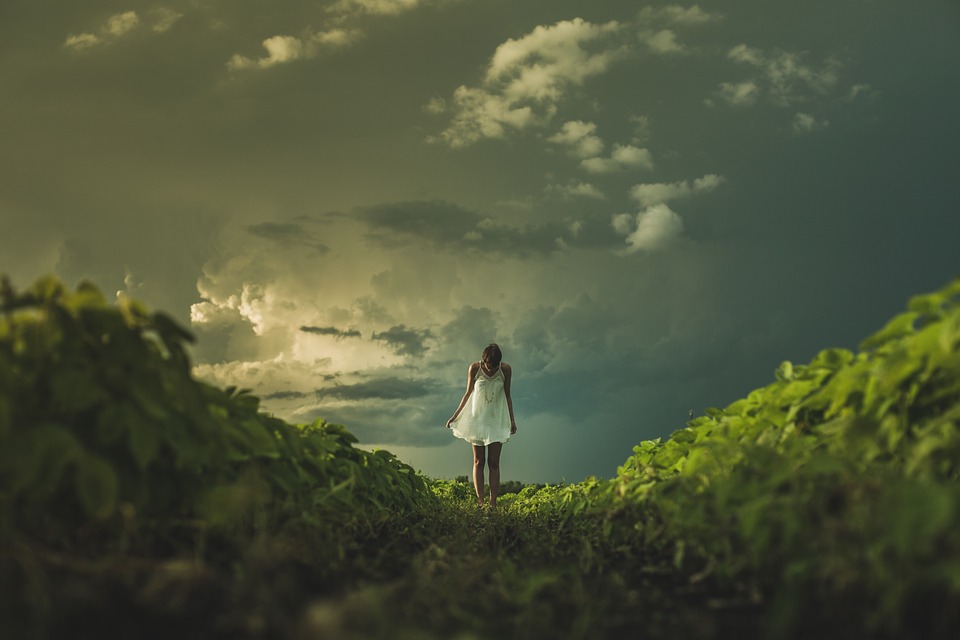
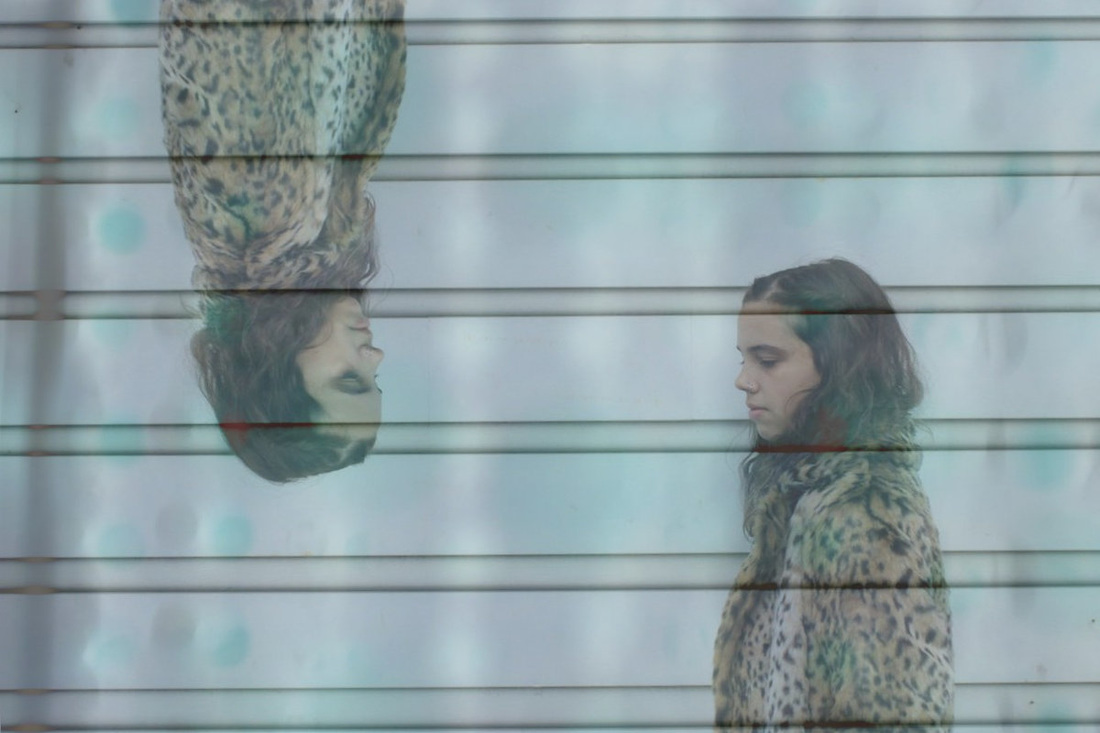

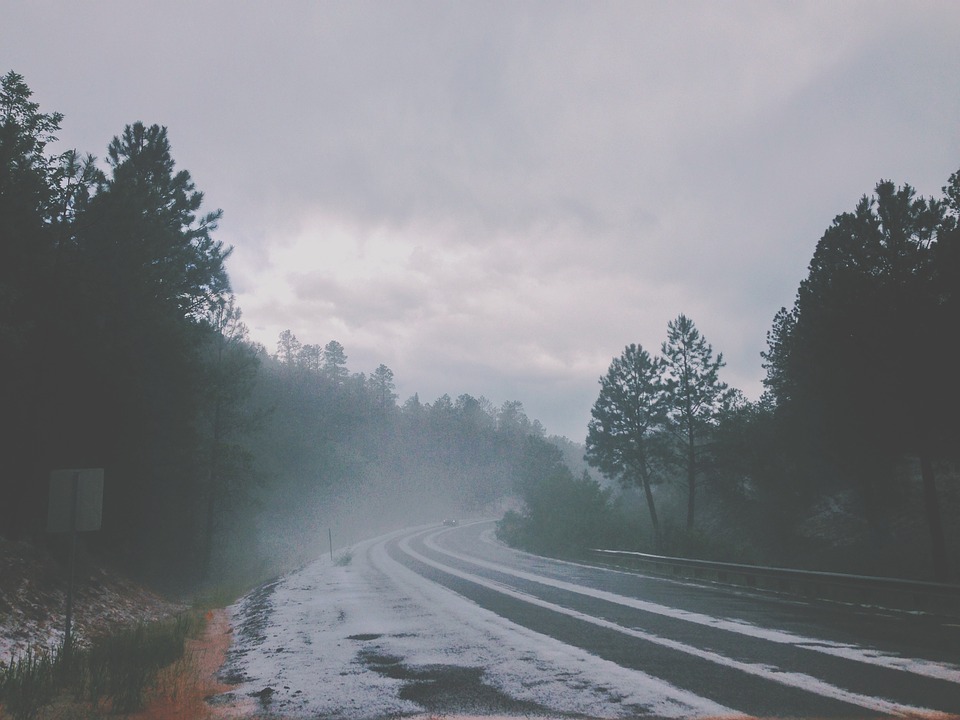
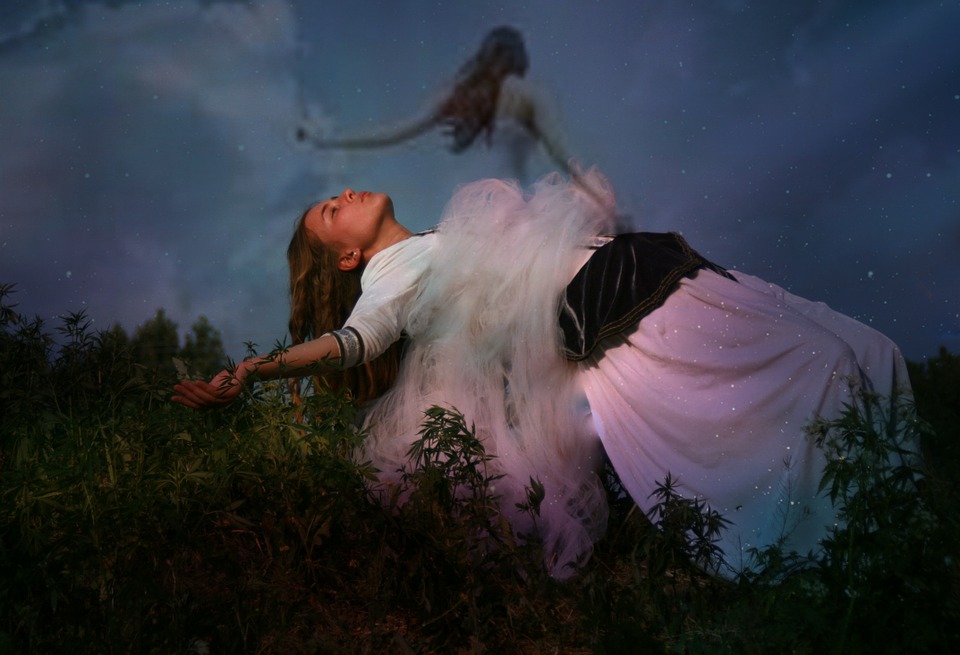
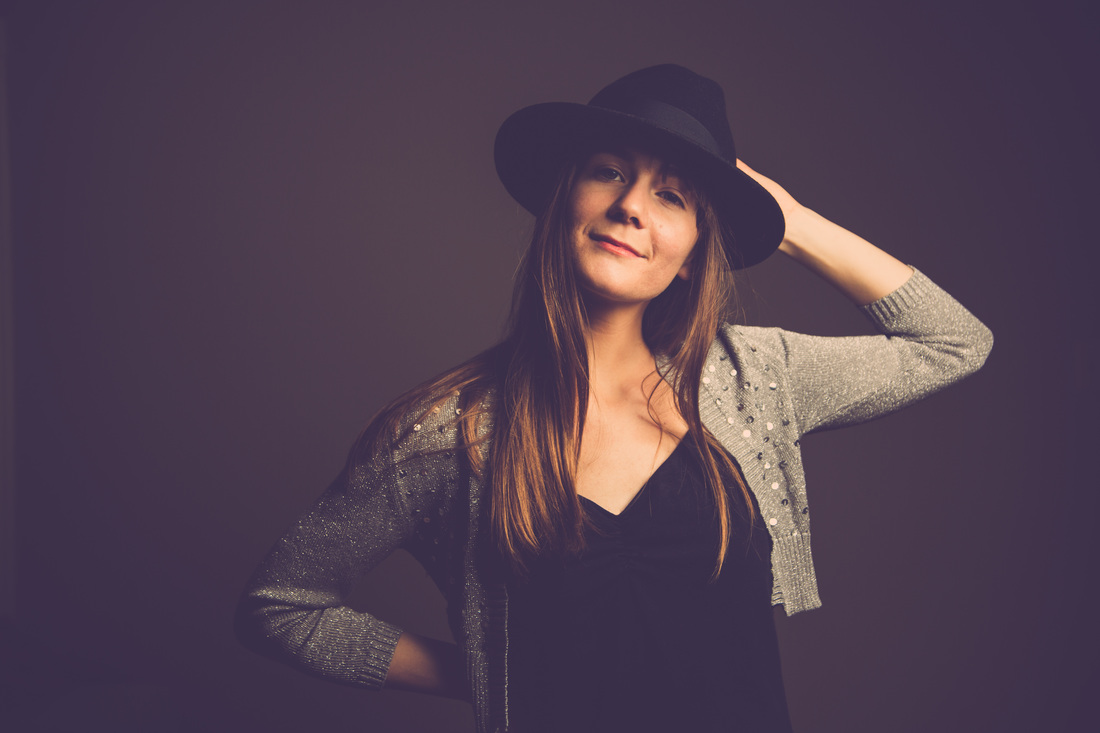
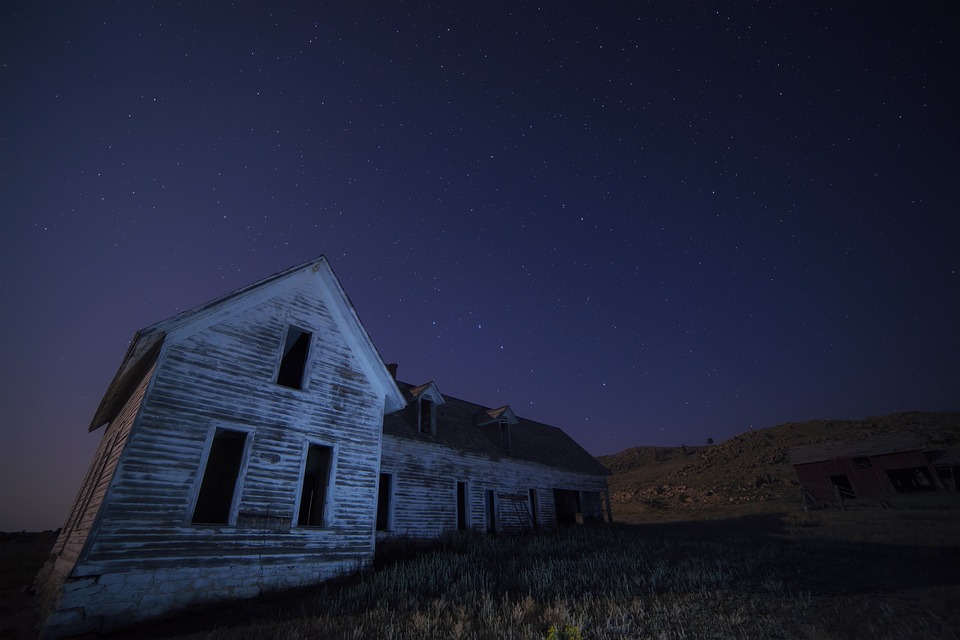
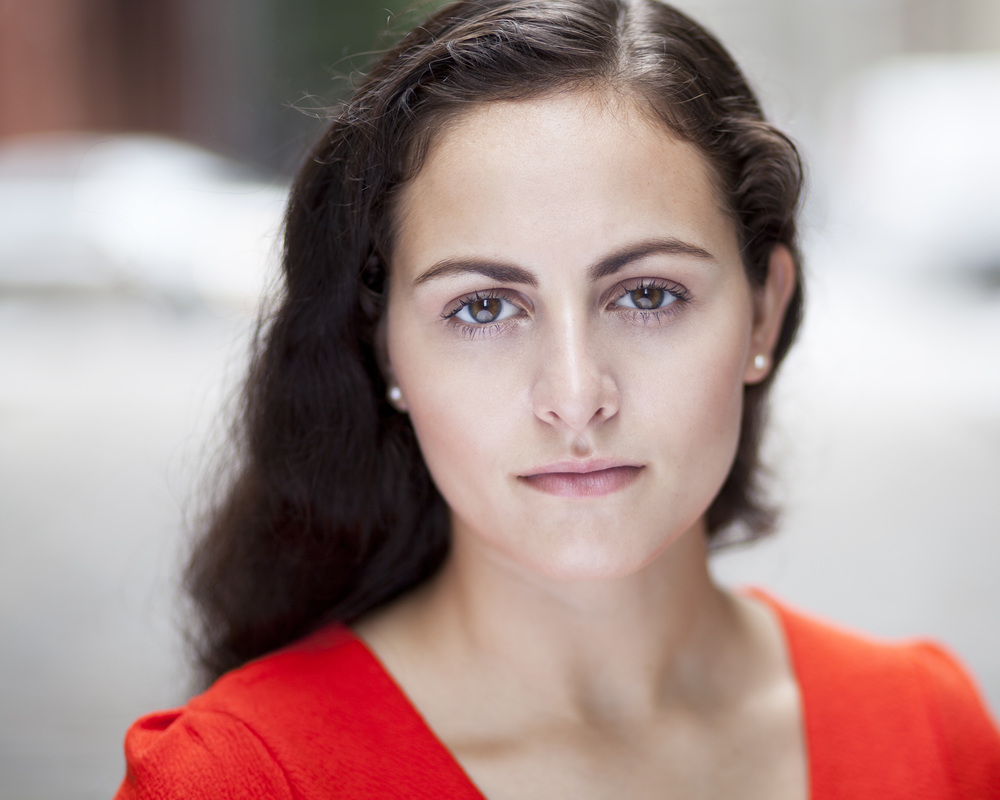
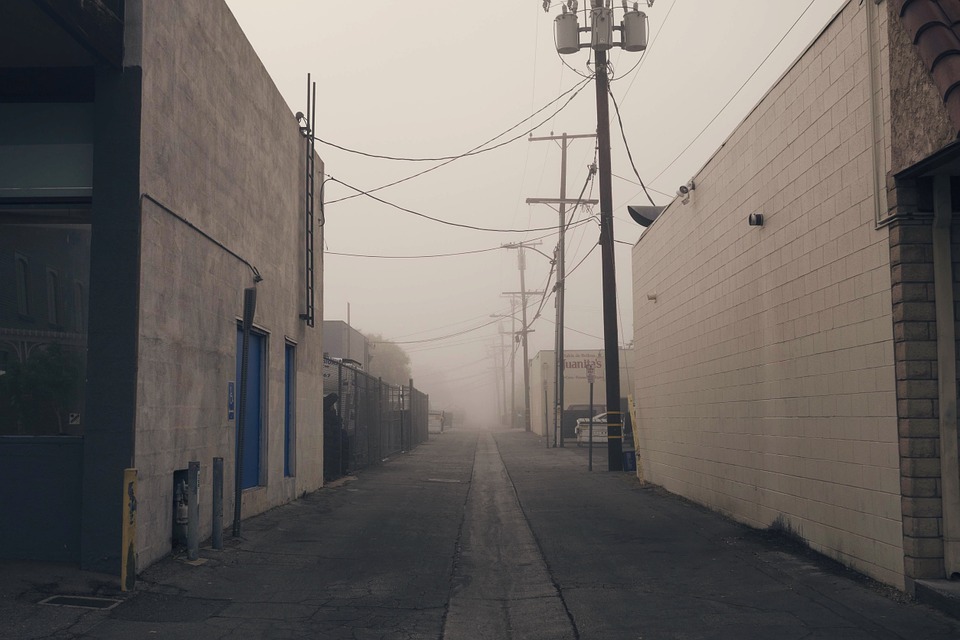
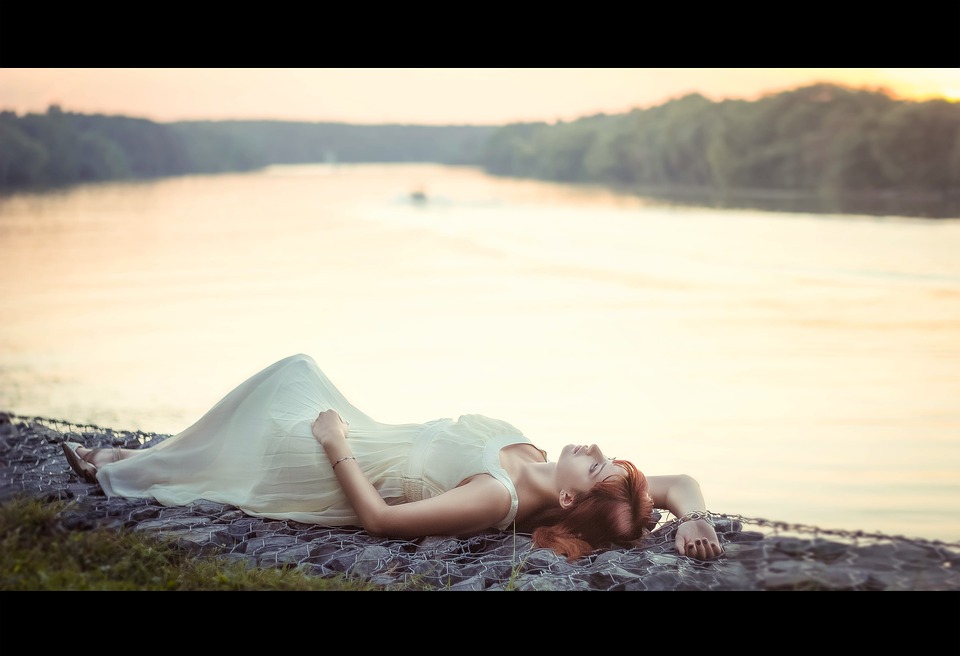
 RSS Feed
RSS Feed
